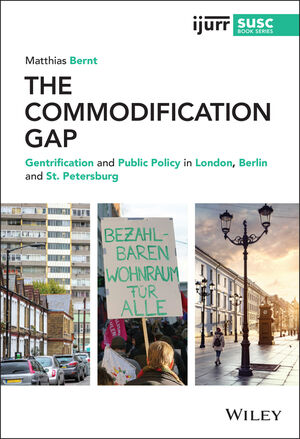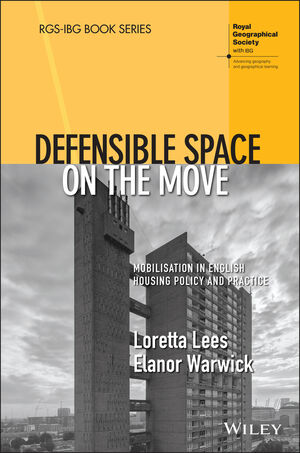Date and time
Tuesday 1 November 2022, 5-6.30 pm UK time
Location
Room PAR.1.02, Parish Hall, Sheffield Street, LSE WC2A 2HA
Direction: Campus Map (see here for access guide)
Please kindly note that this is a hybrid event. A Zoom link will be provided to those who complete pre-registration.
Pre-registration via Eventbrite
Gentrification and Public Policy: Comparative Perspectives
Please join us at our next event to mark the launch of the latest book in the IJURR Studies in Urban and Social Change Book Series: The Commodification Gap: Gentrification and Public Policy in London, Berlin and St. Petersburg by Matthias Bernt.
The event will include reflections on the book from the author and discussions by experts in the field of housing, gentrification and social change.
This event is hosted in collaboration with LSE Saw Swee Hock Southeast Asia Centre and LSE Department of Geography and Environment.
Register here to attend in person or online.
Book Description

The Commodification Gap provides an insightful institutionalist perspective on the field of gentrification studies. The book explores the relationship between the operation of gentrification and the institutions underpinning – but also influencing and restricting – it in three neighbourhoods in London, Berlin and St. Petersburg. Matthias Bernt demonstrates how different institutional arrangements have resulted in the facilitation, deceleration or alteration of gentrification across time and place.
The book is based on empirical studies conducted in Great Britain, Germany and Russia and contains one of the first-ever English language discussions of gentrification in Germany and Russia. It begins with an examination of the limits of the widely established “rent-gap” theory and proposes the novel concept of the “commodification gap.” It then moves on to explore how different institutional contexts in the UK, Germany and Russia have framed the conditions for these gaps to enable gentrification. The Commodification Gap is an indispensable resource for researchers and academics studying human geography, housing studies, urban sociology and spatial planning.
About the Participants
Matthias Bernt is a sociologist and political scientist who works as a Senior Researcher at the Leibniz Institute for Research on Society and Space in Erkner, Germany. He is also Adjunct Professor at Humboldt University in Berlin. His research focuses on the interrelations between urban development and urban governance. In addition to academic work, Matthias has actively participated in various tenant movements in Berlin for more than two decades.
Loretta Lees is Director of the Initiative on Cities at Boston University, USA. She is an urban geographer who is internationally known for her research on gentrification/urban regeneration, global urbanism, urban policy, urban public space, critical geographies of architecture, and urban social theory. She has been identified as the only woman in the top 20 most referenced authors in urban geography worldwide (Urban Studies, 2017). Since 2009 she has co-organised The Urban Salon: A London Forum for Architecture, Cities and International Urbanism. She is also a Scholar-Activist who supports and co-produces research with, community groups and social movements, most recently with respect to the demolition of council estates in London.
Michael Edwards works on the relationship between property markets and planning, mainly in the UK and Europe. He is active in London planning, most recently supporting community groups in challenges to successive London Plans, supported by UCL Public Engagement Unit. Michael is a founding member of the International Network for Urban Research and Action (INURA), the Planners Network UK (PNUK), and JustSpace.
Hyun Bang Shin (@urbancommune) is Professor of Geography and Urban Studies at the London School of Economics and Political Science and directs the LSE Saw Swee Hock Southeast Asia Centre. He is Editor of the International Journal of Urban and Regional Research and is also a trustee of the Urban Studies Foundation.


